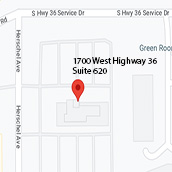Twin Cities BILL COLLECTOR/HARASSMENT Attorneys
Fair Debt Collection Practices Act
Click for information about the Telephone Consumer Protection Act
 If you are looking at our website, you have likely been contacted by a debt collector for one reason or another. Some of you have been called on your cell phone without permission, some of you have been contacted while at your work, some of you have had your family, friends, and neighbors called without your permission, and still others of you have received calls for debts that are not even yours. Whatever the reason, you are at our site for answers. Now, before you read further, you are always welcome to call our lawyers to discuss your legal questions and concerns at no cost to you. You can find our contact information at Contact Us Now
If you are looking at our website, you have likely been contacted by a debt collector for one reason or another. Some of you have been called on your cell phone without permission, some of you have been contacted while at your work, some of you have had your family, friends, and neighbors called without your permission, and still others of you have received calls for debts that are not even yours. Whatever the reason, you are at our site for answers. Now, before you read further, you are always welcome to call our lawyers to discuss your legal questions and concerns at no cost to you. You can find our contact information at Contact Us Now
To begin, debt collectors in general are governed by both state and federal laws regarding their debt collection activities. One of the biggest complaints our office hears is that you really want the debt collector to stop calling you. These calls can be stressful and overwhelming and you just want them to stop. You are getting calls to your work, to your boss and co-workers, your home at all hours of the day and night, to your family, friends, and neighbors, even on your cell phone with an auto-dialer or pre-recorded voice. If this is happening, you should give us a call immediately so we can discuss your rights. However, if that is not possible, you should have a basic understanding of some of the simplest solutions to your concerns.
There are really two federal laws that govern the debt collector’s ability to call you. The first is called the Fair Debt Collection Practices Act or FDCPA. Under the FDCPA, you can stop legitimate debt collectors from calling you by sending a written request to the debt collector requesting the debt collector stop any and all calls. Give us a call and we can discuss the facts of your case and the content of the letter.
Faxing or certified mail is the best practice to send this letter because it provides you written confirmation of the debt collector’s receipt of your notice. Beware, however, that if this request is made, the debt collector could still contact you to notify you that there will be no further contact as well as to inform you that it or the creditor may take other actions against you it is legally allowed to take, such as a lawsuit against you.
Demanding that the debt collector stop calling you does not mean you do not owe the debt, it simply means the debt collector is no longer allowed to call you about the debt. Thereafter, all calls must stop or the debt collector has likely violated the FDCPA. Your damages under the FDCPA for the debt collectors violations can be up to $1,000 if no actual damages such as emotional distress or out of pocket expenses incurred as a result of the violation(s), as well as your attorney fees and costs paid for by the debt collector. That’s right, if a debt collector violates this federal law, the debt collector has to pay your attorney’s fees and costs.
An equally powerful tool you have to stop unwanted calls not only applies to debt collectors, but also creditors. This second federal law helps prevent calls to your cell phone. This law applies to GMAC, Nuvell, Ford Motor Companies, AMEX, Chase, Discover, and other creditors as well as debt collectors. The Telephone Consumer Protection Act or TCPA, is a federal law that prevents anyone from calling a cellphone with an auto-dialer or pre-recorded voice when he or she does not have consent or permission to do so.
When a debt collector calls your cell phone, there is a good chance you never gave the debt collector consent or permission in the first place. This is because debt collectors have the ability to obtain cell phone numbers from paid services. If you have received calls to your cell phone with an auto-dialer or pre-recorded voice, and you have not consented to the calls, regardless of the debt you owe, the debt collector has already violated the TCPA. The debt collector is subjected to the penalties of the TCPA, and you are entitled to money damages from the debt collector.
If the creditor or the debt collector has obtained consent, then you simply need to revoke the consent to receive these calls to your cell phone. Again, do this with a writing (best practice) and fax or mail the notice to stop all calls to your cell phone so you have proof the request was made. We would be happy to discuss the facts of your specific case and go over the appropriate content your letter should contain. Regardless, you want a copy of any correspondence sent for your records. You should again give us a call to discuss your possible case as your enforceable damages can be anywhere from $500 to $1,500 per call if there is any sort of violation. That is for each violation.
Now, if you are looking for answers in addition to how can you can stop debt collectors from contacting you, the simple answer is to contact our lawyers because the FDCPA has a lot of rules that the debt collectors must follow when talking with you.
For example, a debt collector:
• Cannot use false or deceptive statements to you in an attempt to bully you into making payments for a debt, they cannot lie to you;
• Cannot use demeaning or vulgar language while speaking with you. Often times, a debt collector will call you a deadbeat, criminal, or other names to make you feel bad for your inability to pay a debt. They will swear at you to get you emotional and make you pay;
• Cannot call your work if the debt collector has been made aware (by you, your boss, or co-worker) that you cannot receive debt collection calls to your work;
• Cannot call your family, friends, or neighbors if they already know how to get ahold of you unless you provided permission to do so;
• Cannot use threats when attempting to collect a debt from you. For example, a debt collector cannot threaten you with arrest if you do not pay the bill. An even bigger threat involves a debt collector claiming they are going to garnish your wages or bank accounts. Unless they lawfully have a right to do so and have already obtained a judgment against you, in general terms this is a threat that may be a violation. There are many steps that must occur before a debt collector has the ability to garnish anything;
• Must validate a debt if you request validation (writing is preferred and may be required in your jurisdiction) within 30 days of the initial contact with the debt collector;
Plain and simple, you do not have to be harassed or abused by debt collector’s unfair attempts to collect a debt. You can take action, prevent further harassment, and take back your dignity by holding abusive and harassing debt collectors accountable.
The reality is that we only collect a fee if you recover compensation. We cover all up-front costs. To find out how we can help you fight back against debt collectors, call 651-ANY-TIME (269-8463) or toll free at 1-877-791-7790. You can also contact us online for a free consultation.
Our lawyers work with clients from Minnesota, Wisconsin and across the country to hold companies accountable and recover compensation for our clients. Consider talking to our lawyers if a debt collector has:
• Done any of the above to you or a family member;
• Caused you to lose your job over the debt collector’s tactics;
• Caused you to suffer a medical condition or health related issue from the debt collector’s actions;
• Caused you to suffer anxiety or panic attacks;
• Caused you to lose sleep from stress;
• Caused you to fear for your safety;
• Caused you to file a police report;
• Taken money out of your bank account without your permission;
• Taken money from your paycheck without permission;
• Caused you to incur bank fees for over-drafting your bank account because the debt collector took more money than agreed to;
• Called you multiple times in a row to get you to answer the phone;
• Called your home late at night in an attempt to annoy or harass you into paying a debt; or
• Sued you and pursued you for a debt you told the debt collector you did not owe or were not responsible for.
This is only a sample of what our client’s have faced because of debt collectors conduct. We know that you have had to make hard decisions, want to pay your bills, want the collectors to stop calling, and deserve to be treated with dignity and respect. Our FDCPA lawyers can help you take action in your case. Contact Us Now
If you think you have been abused or harassed by a debt collector, or are not sure, call our Twin Cities office of Johnston | Martineau, P.L.L.P., to consult with one of our lawyers and find out if you have a case.
Client Review
“The entire team at Johnston Martineau is very personable and truly care about their clients. They go the extra mile to help out their people and community. Would highly recommend.”
Paxton Moreno







